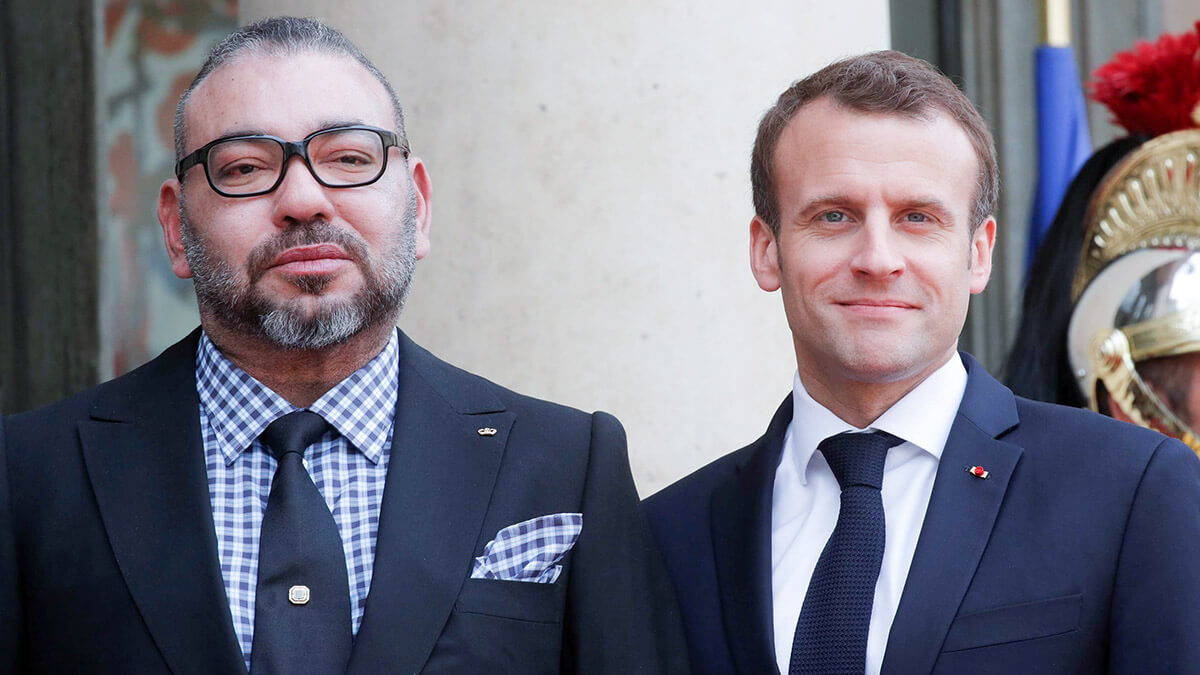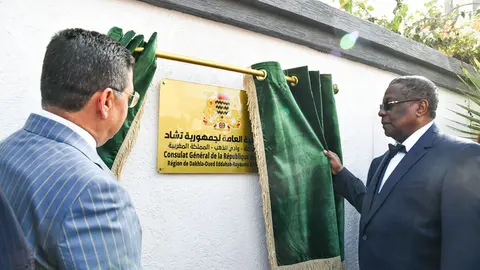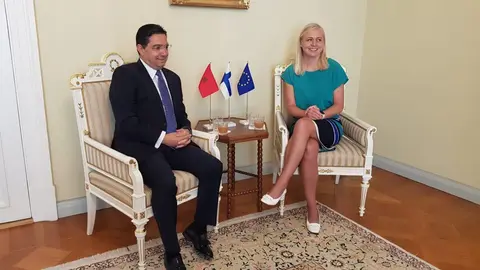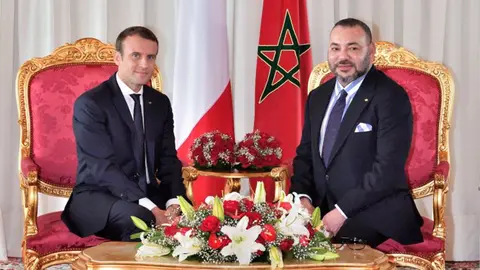The Western Sahara conflict and its end

The Western Sahara dispute is nearing its end. Many important countries on the international scene, such as the United States, France, Germany, Israel, the United Arab Emirates and Spain, have supported Morocco's autonomy proposal for Western Sahara as the most serious, realistic and credible solution to a territorial conflict that has lasted almost 50 years.
Along these lines, there are observers who even see the conflict as already over. This is the case of the United States Institute of Peace, which affirms, through its Director of North Africa Programmes, Thomas M. Mill, that ‘the Western Sahara conflict is over’.
According to Thomas M. Mill, ‘France's recognition of Moroccan sovereignty is a decisive step towards ending the Western Sahara conflict’.

‘International acceptance of Moroccan control of the territory is growing’ and “the Saharawi people and Algeria must negotiate peace terms before the status quo becomes permanent”, according to Thomas M. Mill.
France's recent recognition of the Moroccan status of Western Sahara has given even more impetus to Morocco's initiative on the Saharawi territory, given the important ties that France also has with Algeria, a major political opponent of Morocco in the Maghreb.
Morocco proposes for Western Sahara a formula of broad autonomy under Moroccan sovereignty that would grant the Saharawis a great deal of self-government and an important development project in all areas to make the area grow exponentially; all of this, respecting the resolutions of the United Nations Organisation (UN) and highlighting the great effort to develop negotiations between the parties involved implemented by the UN Secretary-General's special envoy for Western Sahara, Staffan de Mistura.
The Moroccan proposal, which defends its territorial integrity, has received the backing of the most important powers, thanks in part to the favourable impulse given by the last US administration of Donald Trump in December 2020, when it recognised the Moroccan status of the Sahara in exchange for the Moroccan kingdom establishing diplomatic ties with Israel in the wake of the Abraham Accords of September of that year, under which several Arab nations such as the United Arab Emirates and Bahrain established diplomatic ties with the Israeli state with the aim of pacifying the Middle East and developing the region socially and economically.

This position is opposed by the pro-independence Polisario Front, which proposes holding a referendum on independence for the Sahrawi population, which is very difficult to achieve, as several experts have pointed out due to issues such as the electoral roll, and which has much less support, including that of Algeria, Morocco's great political rival, especially since the Algerian state's decision to break off relations in August 2021 after accusing the Moroccan kingdom of ‘hostile acts’. The situation between Algeria and Morocco has become entrenched despite the hand extended by the Moroccan king, Mohammed VI, to redress the situation and restore good relations between the two Maghreb neighbours.
The massive support for Morocco on the Western Sahara issue is already forcing all parties involved to negotiate, including rivals Algeria and the Polisario Front, which should accept the Moroccan kingdom's proposal as a final solution to the conflict due to the overwhelming support it has already received.
In this regard, for the US Institute of Peace, ‘one of Africa's longest wars came to an end in July, when France recognised Morocco's claim to sovereignty over Western Sahara’. ‘That action, coupled with Morocco's military advantage, will effectively leave the indigenous Sahrawi independence movement with no choice but to settle for some form of autonomy within Morocco. While this reality will be unsatisfactory for the approximately 173,000 Saharawis living in refugee camps, their best option, and that of their sponsor, Algeria, is now to seize the opportunity to negotiate the best possible peace terms with Morocco. Ending a war that keeps so many people stateless and living in misery, while removing a major stumbling block to the Moroccan-Algerian relationship, will improve regional stability’, Thomas M. Mill noted.
The situation in the Sahrawi refugee camps in Tindouf is alarming, given the difficult living conditions they suffer there under the tutelage of Algeria and the Polisario Front, as several analysts have pointed out. Meanwhile, Morocco's proposal is a great lure for a better future and a plan for the future with a prosperous territory, on which the Moroccan kingdom is betting heavily to promote important economic activity.

The Sahrawi population of the region and the Polisario Front political-military group have been fighting for independence since the 1970s, when Spain controlled the territory as a colonial power. After Spain's withdrawal in 1975, Morocco finally reclaimed and occupied the territory and began to develop the area under its control. With the help of neighbouring Algeria, the Polisario Front launched an unsuccessful effort to liberate the territory and establish the Sahrawi Arab Democratic Republic (SADR), which currently has little international recognition.
In 1991, the UN undertook to resolve the conflict by establishing a peacekeeping mission tasked with organising and securing a popular referendum on the territory's status. That referendum has never been held, and the territory remains under Moroccan control, with many of the region's former inhabitants exiled to refugee camps inside Algeria.
Now has come a massive wave of international recognition by over 100 countries of Morocco's autonomy proposal for Western Sahara, and the end of the conflict with a solution based on the Moroccan proposal is very near.

Even for analysts such as Thomas M. Mill of the US Institute of Peace, the conflict is already over, given the point at which the Moroccan initiative is at the height of international recognition. Especially with the backing of the United States, as a major world power, and France, ‘arguably the most influential foreign actor in the region’.
‘France's decision to end its neutrality on the Western Sahara issue reflects and reinforces a growing international consensus in support of Morocco's sovereignty claims. The de facto control now enjoyed by Morocco will become a permanent status unless the Polisario Front acts quickly to negotiate more concessions than Morocco offered in its 2007 autonomy plan’, explained Thomas M. Mill.











